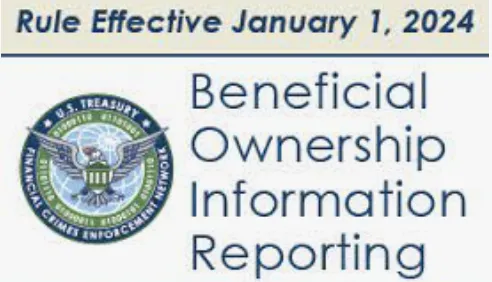Form 3800, the General Business Credit, is your go-to tool for unlocking a treasure trove of small business tax credits. This master form keeps the tax credit game strong, helping businesses make the most of tax savings. With over 30 credits up for grabs, including incentives for research, hiring, and more, it’s a goldmine for businesses looking to cut down on taxes. Whether you’re a sole proprietorship, partnership, or corporation, if you’re eligible, you can play the Form 3800 game. It’s like your cheat code to reduce your tax bill and get those valuable credits that can enhance your bottom line. Just remember, tax law can be a maze, so consulting with a tax pro is like having a seasoned guide to navigate this terrain and make the most of your small business tax credits. Happy tax-saving!
Key Takeaways
- Form 3800 currently summarizes over 30 small business tax credits that an entity can claim in a tax year.
- The IRS defines an eligible small business as a corporation (private), partnership, or sole proprietorship.
- Amended Form 3800s can be submitted for the qualifying research credit (“R&D”), along with the necessary supporting documents and schedules dating back 3 years.
- Form 3800 must be accompanied by the qualifying small business credit being claimed. For example, Form 6765 (Increasing Research Activities) will accompany Form 3800.
What is Form 3800?
Form 3800 is used to calculate and claim any qualifying small business tax credit. The form is used to calculate and claim credits such as the investment credit, work opportunity credit, research credit, and other general business credits. Form 3800 summarizes the credits for the tax year and indicates carryback and carryforward of unused credits.
Who is eligible to file Form 3800?
Form 3800 is typically filed by corporations (C corporations) and individuals who operate a business as a sole proprietorship, partnership, or S corporation. The eligibility and availability of specific tax credits may vary depending on the type of business, its activities, and the applicable tax laws.
Eligibility requirements, limitations, and calculations for each specific tax credit can be complex. A qualified tax professional can determine if you qualify for the credits and correctly complete Form 3800 based on your business’ circumstances.
What are the benefits of filing Form 3800?
Filing IRS Form 3800 can provide several benefits to eligible businesses. Here are some key advantages of filing Form 3800:
- Tax Savings: Form 3800 allows businesses to claim various tax credits, which can result in significant tax savings. These credits directly reduce the amount of tax owed, potentially leading to lower tax liabilities or even tax refunds.
- Incentives for Business Activities: The credits available on Form 3800 are designed to incentivize certain business activities. By claiming these credits, businesses are encouraged to engage in activities such as research and development, hiring from specific target groups, providing employee benefits like health insurance, and improving accessibility for individuals with disabilities.
- Offsetting Start-up Costs: Certain credits on Form 3800, such as the Credit for Small Employer Pension Plan Startup Costs, can help offset the expenses associated with starting new retirement plans or providing employee benefits. This can be particularly beneficial for small businesses that may face financial constraints during the early stages of their operations.
- Enhancing Cash Flow: Utilizing tax credits through Form 3800 can improve a business’s cash flow by reducing tax liabilities. This additional cash flow can be reinvested in the business for growth, expansion, or other operational needs.
- Supporting Compliance: Filing Form 3800 allows businesses to properly report and claim the tax credits they are eligible for. By accurately documenting and reporting these credits, businesses can maintain compliance with tax laws and regulations.
When is Form 3800 due?
Form 3800 is filed with your corporate return. The due date depends on your fiscal year and corporate structure.
- Calendar Year Corporations (C Corporations): For C corporations filing on a calendar year basis, Form 3800 is generally due on the 15th day of the fourth month following the close of the tax year. Therefore, the due date for most C corporations is typically March 15th.
- Fiscal Year Corporations: Corporations that operate on a fiscal year basis should file Form 3800 by the 15th day of the fourth month following the end of their fiscal year.
- Pass-Through Entities: For sole proprietors, partnerships, and S corporations, the due date for Form 3800 is generally the 15th day of the third month following the end of their fiscal year. This means it is typically due on March 15th for calendar year filers.
| Business Structure | Due Date |
| C-Corporations | 15th of April or 16th of October (if an extension was filed) of any respective year. The form accompanies the filing of Form 1120. |
| S-Corporations | 15th of March or 15th of September (if an extension was filed). The form accompanies the filing of Form 1120-S. |
| Sole Proprietorships | 15th of April or 16th of October (if an extension was filed) of any respective year. The form accompanies Schedule C and Form 1040. |
| Partnerships | 15th of March or 15th of September (if an extension was filed). The form accompanies the filing of Form 1065. |
What types of expenses are eligible to deduct on Form 3800?
The eligible small business credits that can be claimed on Form 3800 may vary depending on the tax year and specific circumstances of the business. However, here are some common small business credits that can be claimed:
- Credit for Small Employer Pension Plan Startup Costs: This credit is available to eligible small businesses that start a new retirement plan for their employees. It helps offset the costs associated with establishing and administering the plan.
- Credit for Small Employer Health Insurance Premiums: Small businesses that provide health insurance coverage to their employees may be eligible for this credit. It aims to assist small employers in offering health insurance benefits to their workforce.
- Disabled Access Credit: This credit is available to small businesses that incur expenses for making their premises more accessible to individuals with disabilities. It covers costs related to providing accessible facilities, equipment, and services.
- Work Opportunity Credit: This credit is designed to encourage the hiring of individuals from specific targeted groups who face barriers to employment. Eligible individuals may include veterans, long-term unemployed individuals, ex-felons, and others.
- Research Credit: Businesses that conduct qualified research and development activities may be eligible for the Research Credit. This credit incentivizes innovation and technological advancements.
It’s important to note that the availability, requirements, and limitations of these credits can vary. There may be additional credits that could be relevant to specific industries or circumstances.
What are the other eligible small business credits?
A small business is defined by average annual gross receipts of less than $50 million over a 3-year tax period. If less than the 3-year period, the average must be used since the business existed.
Some credits can include the following:
- Investment credit (Form 3468): In the following order — rehabilitation credit, energy credit, qualifying advanced coal project credit, qualifying gasification project credit, qualifying advanced energy project credit, qualifying therapeutic discovery project credit (carryforward only), and advanced manufacturing investment credit;
- Work opportunity credit (Form 5884);
- Biofuel producer credit (Form 6478);
- Credit for increasing research activities (Form 6765);
- Low-income housing credit (Form 8586);
- Enhanced oil recovery credit (Form 8830);
- Disabled access credit (Form 8826);
- Renewable electricity production credit (Form 8835);
- Empowerment zone employment credit (Form 8844);
- Renewal community employment credit (carryforward only);
- Indian employment credit (Form 8845);
- Employer social security and Medicare taxes paid on certain employee tips (Form 8846);
- Orphan drug credit (Form 8820);
- New markets credit (Form 8874);
- Credit for small employer pension plan startup costs (Form 8881);
- Credit for employer-provided childcare facilities and services (Form 8882);
- Qualified railroad track maintenance credit (Form 8900);
- Biodiesel, renewable diesel (Form 8864);
- Low sulfur diesel fuel production credit (Form 8896);
- Credit for oil and gas production from marginal wells (Form 8904);
- Distilled spirits credit (Form 8906);
- Non-+conventional source fuel credit (carryforward only);
- Energy efficient home credit (Form 8908);
- Energy efficient appliance credit (carryfoward only);
- Alternative motor vehicle credit (Form 8910);
- Alternative fuel vehicle refueling property credit (Form 8911);
- Mine rescue team training credit (Form 8923);
- Agricultural chemicals security credit (carryforward only);
- Credit for employer differential wage payments (Form 8932);
- Carbon oxide sequestration credit (Form 8933);
- Qualified plug-in electric drive motor vehicle credit (Form 8936);
- Qualified plug-in electric vehicle credit (carryforward only);
- Credit for small employer health insurance premiums (Form 8941);
- Employee retention credit for employers affected by qualified disasters (Form 5884-A);
- Employer credit for paid family and medical leave (Form 8994);
- Credit for auto-enrollment (Form 8881);
- Sustainable aviation fuel (Form 8864);
- Clean hydrogen production (Form 8835);
- Qualified commercial clean vehicle (Form 8936-A);
- Advanced manufacturing production (Form 7207);
- General credits from an electing large partnership (carryforward only);
How do we complete Form 3800?
For example, Example, Inc., a C corporation, has an increasing research activity credit of $2,000. Example, Inc. meets the definition to qualify as a small business for Form 3800 and Form 6765. The credit amount is entered on Line 1:
On Page 2, it is carried over to Line 34:
Additional Part III for carryforwards/carryback are shown on Page 3:
Can Cleer help determine if I am eligible for Small Business Credits under Form 3800?
Yes. It’s important to note that the specific benefits will depend on the nature of the business, the tax credits claimed, and the tax laws applicable to the tax year in question. To fully understand the benefits and implications of filing Form 3800, we can provide personalized guidance based on your business’s circumstances. If you need any help filing Form 3800, schedule a consultation, or feel free to contact us.
Cleer provides Corporate Income Tax Packages encompassing federal and state income tax filings for a hassle-free experience. We also offer all-inclusive bookkeeping packages, which include your monthly statements plus your federal and state tax returns. If you need help getting up to date on your books, we also offer support for companies that have fallen behind on their bookkeeping with our bookkeeping catch-up package.
If you need any help reducing your tax liability, schedule a consultation, or feel free to contact us.






